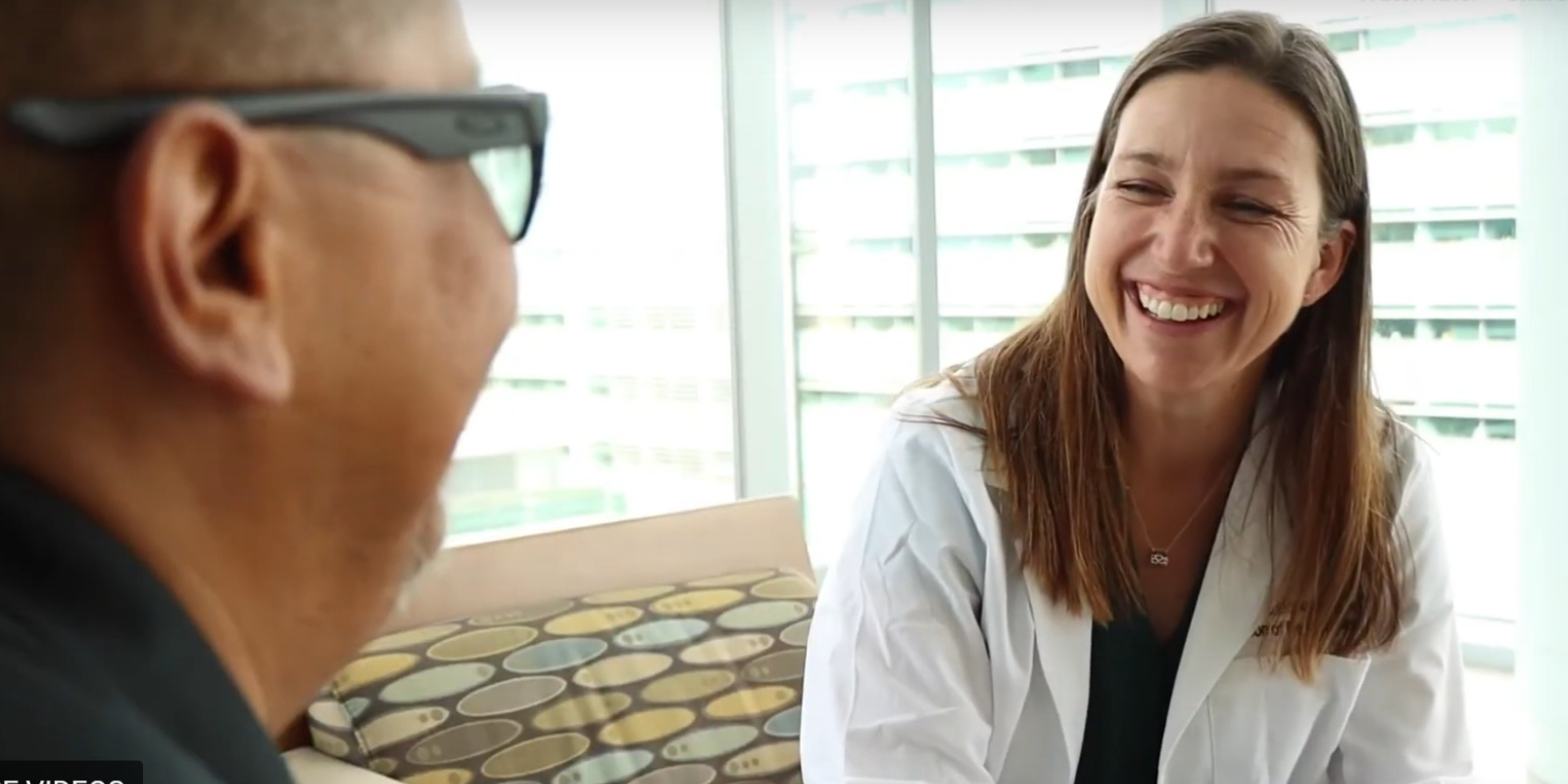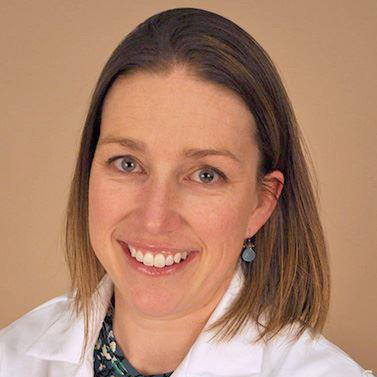A University of Colorado Cancer Center member is developing and testing a new care-planning framework for older adults with advanced cancer that aligns their care with their personal values and goals.
The research is led by Elizabeth Kessler, MD, associate professor in the CU Department of Medicine’s Division of Medical Oncology.
Kessler’s overall research focus is on improving treatment options for patients with advanced genitourinary cancers – cancers of the bladder, prostate, kidneys, and testicles. Those patients are also her clinical focus at the UCHealth Tony Grampsas Urologic Cancer Care Clinic on the CU Anschutz Medical Campus.
In her ongoing research project involving a care-planning framework called ABC123, Kessler’s goal is to ensure that care for older patients with advanced cancer goes hand in hand with their values and priorities, which may differ from those of younger patients. She calls it “goal-concordant care.”
“In the clinical research that helps us understand emerging therapies and ways to take care of people with cancer, younger age groups tend to be over-represented in the data,” Kessler says. “But in the clinic, we see patients primarily in their 60s, 70s, 80s, and 90s. When we look at studies of patients that skew younger, it’s hard to know how they might apply to an older person.”
As people get older, she says, “many things change. Our functional status and our mobility might change, and even how we set up our lives and our priorities in life might change. We find that many people as they age have less of a focus on longevity or extending life expectancy, which is a huge focus of a lot of oncology trials, but more on ‘Is this treatment going to impact my ability to live independently?’ and ‘How’s this going to affect my day-to-day life and independence?’”
Focus on advanced bladder cancer
With support from a Clinician Scientist Development Grant from the American Cancer Society (ACS) in 2020, Kessler has been balancing her clinical work with developing a framework for care of older adults with advanced bladder cancer, and then piloting the use of this framework in the clinic.
“We started with people with bladder cancer that was incurable with surgery or radiation because they were at such high risk and they tend to have a lot of comorbid conditions,” Kessler says. “Also, generally, chemotherapy is the recommended first-line treatment for these patients, but we’ve seen that older people with advanced bladder cancer rarely got the first-line treatments. Our hypothesis was, maybe they were not as fit or had more potential frailty, but maybe there was a component of not having enough data on the patient to make an informed decision with them.”
The ACS projects that about 84,900 new cases of bladder cancer in the United States this year, and about 1,220 new cases in Colorado. Bladder cancer is about three times more common among men than among women. Smoking is the greatest risk factor. People are most often diagnosed with bladder cancer in their early 70s.
→ What to Know About Bladder Cancer
Hearing from patients
Kessler and her colleagues began their work by interviewing older patients to learn more about their priorities in communicating with providers and making treatment decisions.
Over and over again, patients told them they wanted to understand how treatments might limit their ability to engage in daily activities. They also said they wanted to be active participants in care decisions.
Drawing on what they heard, Kessler designed the ABC123 care-planning framework – ABC for advanced bladder cancer. The framework – in addition to encompassing existing care practices in geriatric medicine, palliative medicine, and medical oncology – includes a geriatric assessment of a patient’s physical function and guided goals for clinicians for discussion of care.
The goal is to “understand the patient’s values up front” before developing a treatment plan, Kessler says. “Some people get started on a treatment and then say, ‘If I had known it would be like that, I would have chosen something else.’ Do they want to live as long as possible, or do they mostly want to make it to a particular life event? We might recommend a different type of therapy if someone says, ‘I’d like to spend as much time away from the hospital as possible.’”
→ CU Cancer Center Member Delivers Promising Updates on Bladder Cancer Treatment
Decreased conflict
For her pilot study, Kessler in 2022 began enrolling patients over 60 with recently diagnosed advanced bladder cancer deemed not curable by surgery or radiation but who still could be treated by chemotherapy. ABC123 is presented through a series of visits and follow-ups over a six-month period. Participating patients and clinicians are surveyed on their experiences after six months. There also is an assessment of whether ABC123 interferes with clinical workflow.
Work on the ABC123 pilot is wrapping up, with a few patients yet to enroll. Kessler says she has not yet published her findings, but based on preliminary data, “we’re seeing that patients are able to make care decisions more comfortably and more in line with their goals and value system by decreasing some of the conflict that patients feel in making these decisions.”
She adds that with ABC123, patients “don’t completely see their care choices as a decision, but mostly as an ongoing process and discussion with their health care team that they also talk about with their family and friends. They view it as a treatment journey.”
Branching out
Using her preliminary data, Kessler has applied for a National Cancer Institute grant for a multi-site randomized trial. This next phase would involve general oncology clinics across Colorado. It also would apply a variation of the ABC123 framework to care of patients with other cancer types when immunotherapy or targeted therapy is being considered in addition to or instead of the chemotherapy.
These adjustments are made based on what's been learned from the pilot study, Kessler says, as well as to meet the broad goal of reaching patients in varied clinic setting to improve cancer care for all.
“We decided that ABC123 doesn’t need to be specific to bladder cancer,” she says. “The themes that we built this framework around are likely to be applicable to older adults with advanced cancers of any type. These values and priorities should be explored with every patient with an advanced malignancy diagnosis.”
Kessler sees her ongoing project as “the way pragmatic clinical research is meant to go – centered on the patient and adapting to clinical contexts. What’s exciting is that we were able to do this pilot, learn from it, grow it into the next steps, and now hopefully can improve the delivery of goal-concordant care for older adults.”
Photo at top: Elizabeth Kessler, MD, meets with a patient. Photo by the CU Cancer Center.




